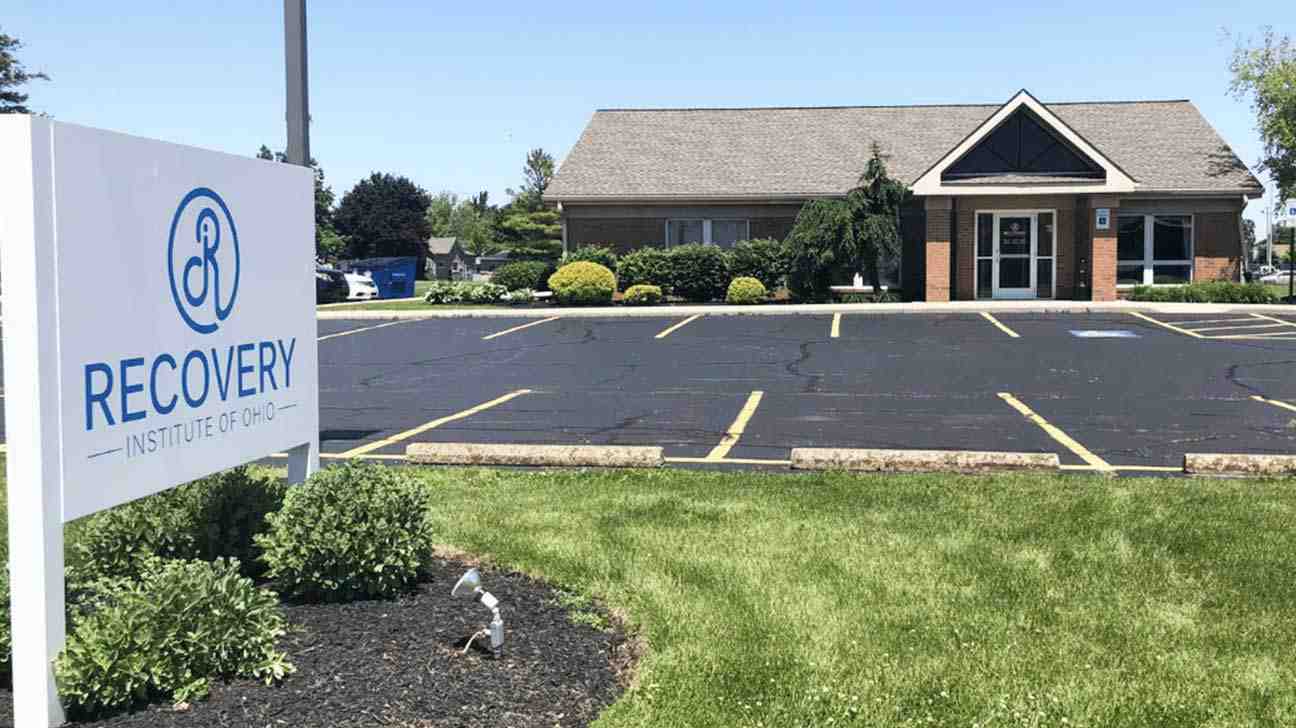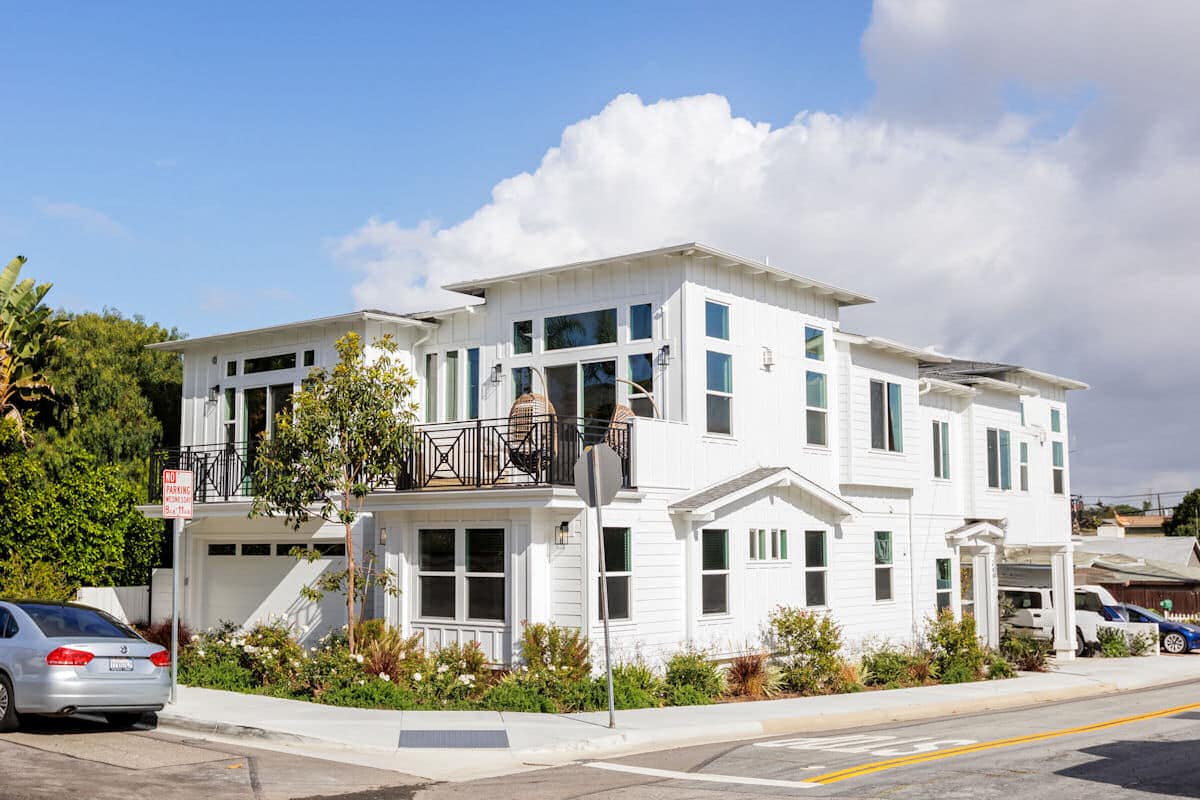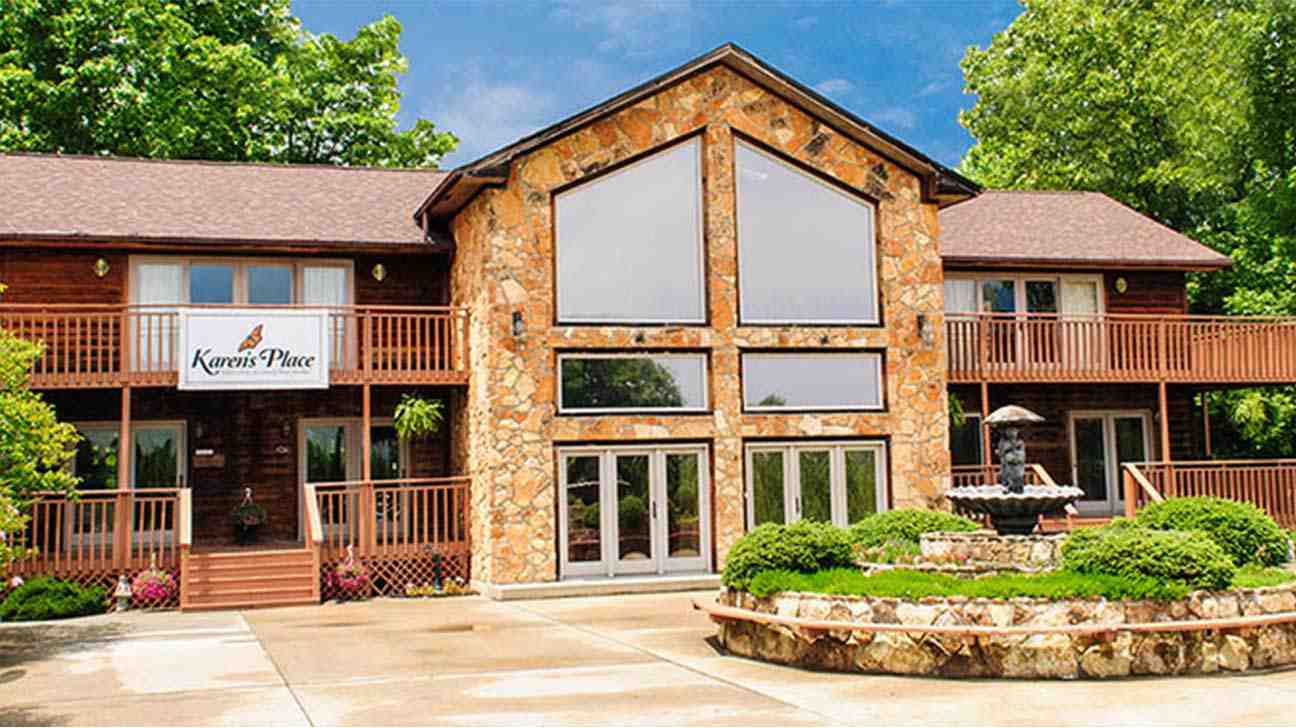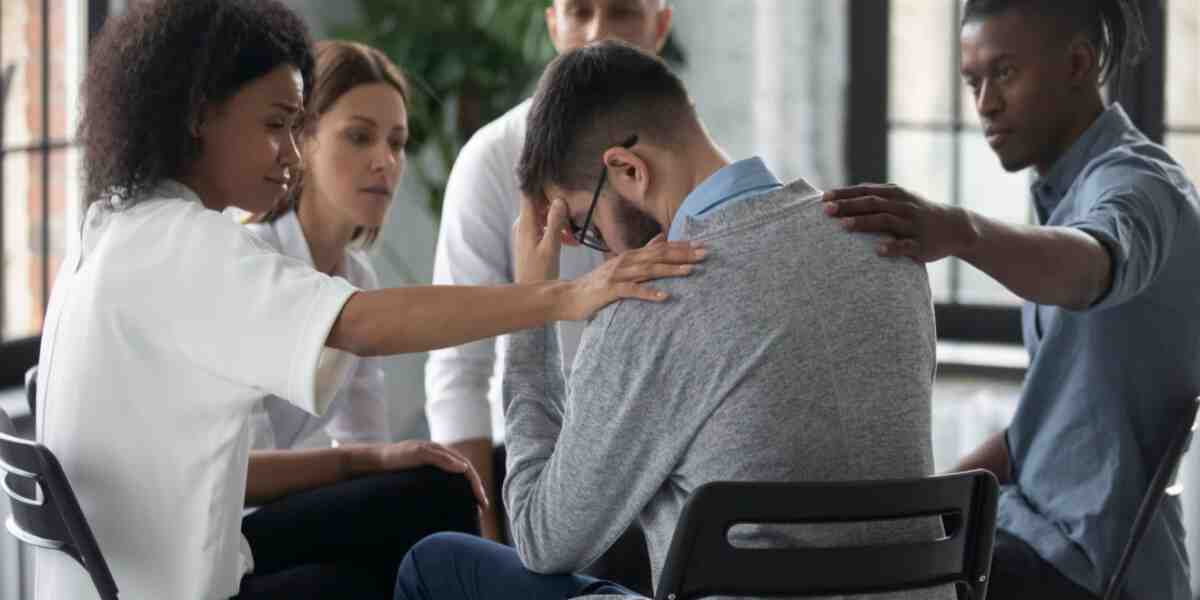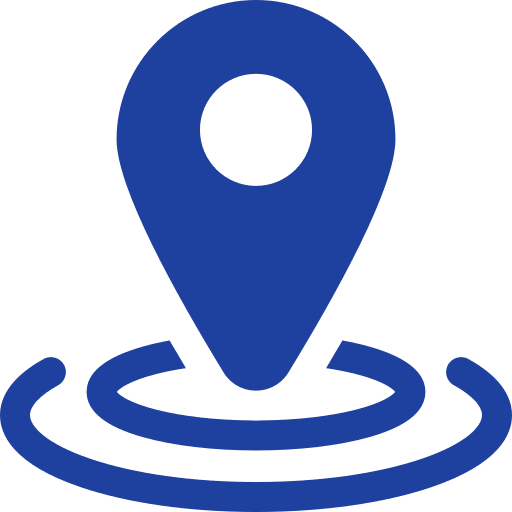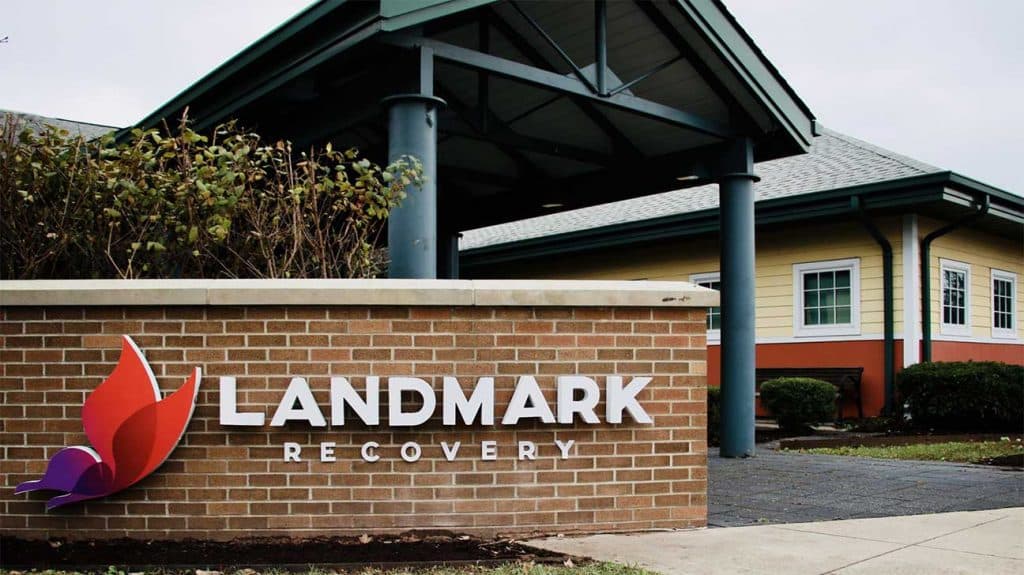
Why Finding the Right Treatment Center Can Save Your Life
Searching for drug and alcohol treatment centers near me is a critical first step for anyone struggling with a substance use disorder. If you’re looking for help, you’re not alone. In 2023, 46.3 million Americans faced this disease, and over 300 people die from drug or alcohol overuse every day in the U.S.
These aren’t just statistics; they are parents, children, and friends. The challenge isn’t whether recovery is possible—it is. The challenge is knowing where to start. This guide cuts through the confusion to help you find the right treatment fast.
Quick Ways to Find Treatment Centers:
- Call Addiction Helpline America: 1-844-561-0606 for free, 24/7, confidential referrals.
- Search FindTreatment.gov: Use the official government database of licensed facilities.
- Contact your County Drug and Alcohol Office: Get local assessments, funding, and referrals.
- Check with your insurance provider: Request a list of in-network treatment centers.
- Call Addiction Helpline America: Get expert guidance connecting you to appropriate care.
Treatment Options Available:
- Detox: Medically supervised withdrawal management.
- Inpatient/Residential: 24/7 care in a structured environment.
- Outpatient: Flexible treatment that works with your daily life.
- Medication-Assisted Treatment (MAT): An evidence-based approach for opioid and alcohol addiction.
At Addiction Helpline America, we’ve helped thousands of families steer the path to recovery. Our addiction specialists are available 24/7 to provide the guidance you need to take that crucial first step. Whether you have insurance, need state-funded options, or are dealing with any substance, there is a path forward. Recovery happens every day for people just like you.
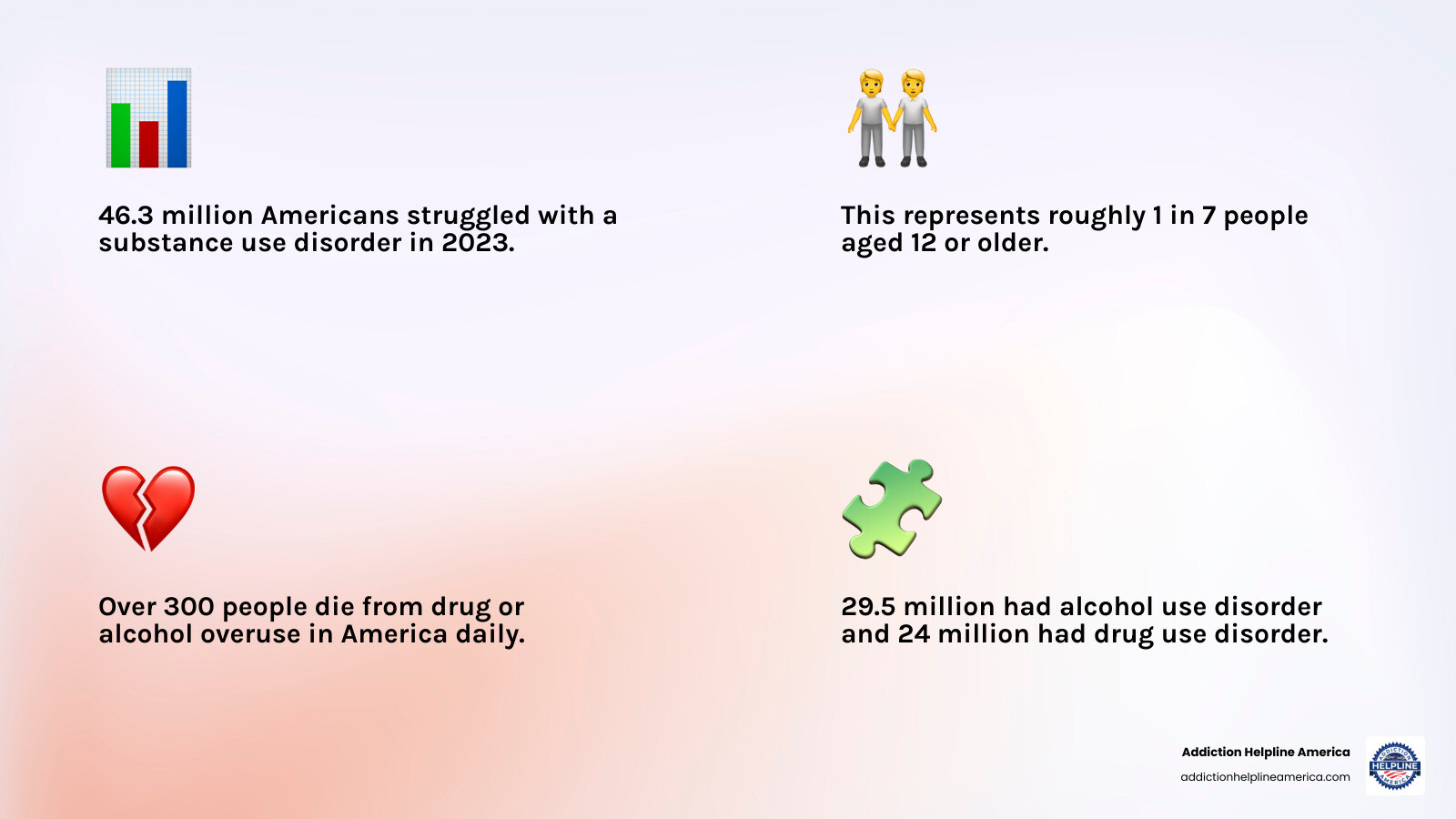
Recognizing the Signs: When Is It Time for Treatment?
Admitting there’s a problem is the first, most difficult step. Substance use often creeps in slowly, blurring the line between casual use and a serious issue requiring professional care. Recognizing the signs is not about blame; it’s about identifying a disease that needs treatment.
Key indicators that it’s time to seek help include:
- Behavioral Changes: Secrecy, lying, and a shift in priorities where substances become the central focus. Hobbies, friends, and family are neglected.
- Neglected Responsibilities: Trouble at work or school, financial crises, and an inability to meet commitments are symptoms of the disease, not character flaws.
- Physical Decline: Unexplained weight changes, poor hygiene, constant fatigue, or frequent illness. The body shows the physical toll of substance abuse.
- Psychological Symptoms: New or worsening anxiety, depression, paranoia, irritability, or unpredictable mood swings. Our resource on the Impact on Life explores this further.
- Fractured Relationships: Trust erodes, arguments increase, and loved ones feel hurt and helpless. The pattern of Usage of Drugs Increasing Addiction takes hold as tolerance builds.
If this sounds familiar, it’s a sign of courage, not weakness. Addiction is a complex brain disease that requires professional treatment. The good news is that drug and alcohol treatment centers near me are designed to help people reclaim their lives.

Understanding Co-Occurring Disorders
About half of those with a substance use disorder also have a mental health condition like anxiety, depression, or PTSD. This is known as a dual diagnosis or co-occurring disorder. Sometimes, substances are used to self-medicate mental health symptoms; other times, substance use triggers or worsens them. This creates a vicious cycle that is nearly impossible to break without specialized help.
Treating the addiction without addressing the underlying mental health issue rarely works. That’s why integrated treatment is essential. The best drug and alcohol treatment centers near me address both conditions simultaneously, helping you develop healthy coping strategies for a life free from substance dependence. Our guide to Rehab Centers for Co-Occurring Disorders can help you find facilities that treat the whole person.
How to Support a Loved One
Watching a loved one struggle with addiction is painful. You want to help but may not know how. Here are a few key principles:
- Approach with concern, not judgment. Focus on specific behaviors and their impact. Say, “I’m worried about you,” instead of making accusations.
- Offer practical support. Help research treatment options, make phone calls, or provide transportation. You can’t force recovery, but you can make it feel more accessible.
- Set firm boundaries. This is the hardest part. Avoid enabling behaviors like giving money or making excuses for them. Allowing natural consequences can be a necessary wake-up call.
Addiction is a family disease, and your healing matters, too. Many treatment centers offer family therapy to help the entire system recover together. For more guidance, visit our Get Help page. You are not alone in this.
Decoding the Levels of Care in Addiction Treatment
Understanding the different types of addiction treatment can be confusing. Addiction treatment isn’t one-size-fits-all; it follows a continuum of care, a spectrum of support ranging from 24/7 medical supervision to weekly therapy. The goal is to match the level of care to your specific needs.
Professionals use criteria from the American Society of Addiction Medicine (ASAM) to determine the right level of care based on addiction severity, withdrawal risk, and co-occurring conditions. Understanding these levels helps you make an informed decision when searching for drug and alcohol treatment centers near me. Our guide to Substance Abuse Treatment offers more detail.

Medically Supervised Detox
Detox is the first step for many, especially for those dependent on alcohol, opioids, or benzodiazepines, which can have dangerous withdrawal symptoms. It is not rehab itself but a necessary precursor to stabilize the body for therapy. Medical professionals monitor you 24/7, managing symptoms to keep you safe and comfortable. Detox typically lasts a few days to a week.
Inpatient and Residential Programs
After detox, many enter inpatient or residential treatment. This provides a structured, 24/7 supportive environment away from daily triggers. Your days are filled with individual and group therapy, educational sessions, and other healing activities. This immersive level of care is ideal for those with severe substance use disorders or co-occurring mental health conditions. Programs typically last 30, 60, or 90 days. Find options in our Inpatient Drug Rehab directory or our Best California Addiction Treatment Guide.
Outpatient Treatment Options
Outpatient treatment allows you to live at home and maintain daily responsibilities while attending therapy. It’s a great option for those with less severe addiction or as a step-down from inpatient care.
- Partial Hospitalization Programs (PHP): The most intensive option, with programming for several hours a day, 5-7 days a week.
- Intensive Outpatient Programs (IOP): A step down from PHP, with sessions for about 3 hours a day, 3-5 days per week.
- Standard Outpatient (OP): The least intensive, involving one or two therapy sessions per week, ideal for ongoing maintenance.
Our network of Local Rehab Centers can help you find flexible outpatient programs that fit your needs.
How to Find Drug and Alcohol Treatment Centers Near Me
When you’re ready for help, searching for “drug and alcohol treatment centers near me” can be daunting. How do you know which facilities are legitimate and affordable? Let’s break down the search into manageable steps.

Using Trusted Resources to Find a Licensed Facility
Starting your search with official resources is crucial to ensure you find quality, licensed care. Here are the best places to begin:
- SAMHSA National Helpline: Call 1-800-662-HELP (4357) for free, confidential, 24/7 treatment referrals.
- FindTreatment.gov: This searchable online database, maintained by SAMHSA, lists licensed facilities across the U.S.
- State and County Agencies: Your state’s health department or local county drug and alcohol office can provide directories of licensed providers and help with funding.
- Accreditation: Look for facilities accredited by organizations like CARF or The Joint Commission. This accreditation signifies that a center meets high standards for quality and safety.
At Addiction Helpline America, we simplify this process. Our free, confidential service connects you to our nationwide network of vetted treatment centers, helping you find the right Drug Rehab Centers Near Me without the stress.
How to find affordable drug and alcohol treatment centers near me
Cost should not be a barrier to recovery. There are many affordable options available:
- Insurance: Most licensed centers accept private insurance. We can help you verify your coverage for free to understand your costs. In-network providers are typically the most affordable option.
- State-Funded Programs: If you have limited or no insurance, state and county agencies offer funding assistance for low-cost or no-cost treatment.
- Non-Profit Centers: Organizations like The Salvation Army offer comprehensive rehabilitation services, often at no charge to participants.
- Sliding Scale Fees: Some facilities adjust their costs based on your income. Always ask if this is an option.
Finding specialized drug and alcohol treatment centers near me
Finding a program that fits your unique background can make a significant difference in your recovery. Many centers offer specialized tracks:
- Veterans: Programs that address the unique challenges of military service, such as trauma and PTSD. See our Veterans Rehab resources.
- Adolescents: Age-appropriate treatment for teens (ages 13-17) that involves family and addresses issues like peer pressure.
- Gender-Specific: Treatment for men or women, providing a focused environment with peers who share similar experiences.
- LGBTQ+ Affirming: Safe, inclusive care that addresses the unique stressors and discrimination this community may face.
- Holistic: Programs that integrate yoga, meditation, and nutrition with traditional therapies. Learn more at our Holistic Rehab guide.
- Court-Ordered: Specialized programs that meet legal requirements while providing effective care. See our Court Ordered Rehab page.
- Pregnant Women: Integrated programs providing prenatal medical care alongside addiction treatment to ensure the health of both mother and baby.
- Faith-Based: Treatment that aligns with spiritual values, incorporating principles of faith into the recovery process.
What to Expect: The Treatment and Recovery Journey
Taking the first step toward recovery is brave, and it’s normal to feel uncertain about what’s next. Your recovery journey is uniquely yours; treatment is not a rigid program but a combination of therapies and tools custom to you. It’s a process of learning and growth, and every step forward matters. For those facing opioid addiction, our Heroin Treatment Programs Guide offers a clearer picture of specialized care.
The Intake and Treatment Process
Your journey begins with a confidential phone call to ask questions and share your concerns. From there, the process typically includes:
- Clinical Assessment: Professionals will review your substance use history, health, and support system to create a complete picture of your needs.
- Medical Evaluation: A check-up to assess physical health and withdrawal risks.
- Personalized Treatment Plan: A custom plan is created, outlining the most effective therapies, medications, and services for your situation.
Treatment itself involves a mix of therapies. Individual therapy, using methods like Cognitive Behavioral Therapy (CBT) or Dialectical Behavior Therapy (DBT), helps you address underlying issues and build coping skills. Group counseling provides a powerful sense of community, breaking the isolation of addiction. Family therapy is also common, helping to repair relationships and teach loved ones how to support your recovery.
Medication-Assisted Treatment (MAT)
For opioid or alcohol addiction, Medication-Assisted Treatment (MAT) can be a game-changer. This evidence-based approach combines therapy with FDA-approved medications to reduce cravings, manage withdrawal, and prevent relapse. It is not swapping one addiction for another; it’s using medicine to support your brain and body while you do the therapeutic work.
- For opioid addiction, medications include Buprenorphine (Suboxone) to reduce cravings, Methadone to stabilize individuals, and Naltrexone to block the euphoric effects of opioids. Our Suboxone for Opioid Addiction and Methadone Programs Near Me Guide have more details.
- For alcohol addiction, medications like Naltrexone, acamprosate, and disulfiram can help reduce cravings and support sobriety.
Aftercare and Long-Term Recovery Support
Completing a treatment program is a huge achievement, but recovery is a lifelong journey. Aftercare is your ongoing support system to help you steer life without returning to substance use.
Essential aftercare components include:
- Support Groups: Communities like Alcoholics Anonymous (AA), Narcotics Anonymous (NA), and SMART Recovery offer peer support and accountability.
- Sober Living Homes: These provide a safe, substance-free environment to practice new skills with peer support before returning to full independence.
- Alumni Programs: Many centers offer programs to keep you connected to your recovery community through events and online groups.
- Ongoing Counseling: Continuing with individual or group therapy helps you manage new challenges and continue your personal growth.
Understanding your Relapse Warning Signs is also crucial. Recognizing early indicators allows you to seek help before a slip becomes a full relapse. Recovery is a marathon, not a sprint, and aftercare provides the tools to keep moving forward.
Frequently Asked Questions about Addiction Treatment
It’s natural to have questions when considering treatment. Here are answers to some of the most common ones we hear.
How long does rehab last?
There is no single answer, as the duration of rehab depends on individual needs, the severity of the addiction, and progress in treatment. Common program lengths include:
- 30-day programs that provide a strong foundation.
- 60- or 90-day programs that allow for deeper therapeutic work.
- Longer-term programs (several months to a year) for chronic or severe cases.
Outpatient programs offer flexibility and can continue for as long as needed. The focus should always be on building a solid foundation for long-term recovery, not on a specific timeline.
Can I be forced to go to rehab?
While treatment is most effective when a person is internally motivated, there are situations where intervention is necessary. The answer depends on state laws and specific circumstances.
- Involuntary commitment laws (like the Marchman Act in Florida) allow family to petition a court for treatment if a person is a danger to themselves or others. This is reserved for crisis situations.
- Court-ordered treatment may be mandated as part of a legal sentence. Many people who enter rehab this way ultimately accept the opportunity to heal. Learn more in our guide to Court Ordered Rehab.
- Family interventions, while not legally binding, can be a powerful catalyst for someone to voluntarily choose treatment.
Sustainable recovery is best achieved through a person’s willingness to change. For more on this topic, see our resource Can I Refuse Mental Health Treatment?.
What should I bring with me to an inpatient facility?
Packing for inpatient treatment should focus on comfort and recovery. Always call the specific facility for their detailed packing list, but here are some general guidelines.
What to Pack:
- Several days’ worth of comfortable, casual clothing and appropriate shoes.
- Alcohol-free toiletries (shampoo, soap, toothbrush, toothpaste, deodorant).
- Your ID, insurance card, and a list of all current medications and dosages.
- A journal or books for reflection during downtime.
- A small amount of cash for vending machines.
What to Leave at Home:
- Illicit substances, alcohol, or any weapons.
- Products containing alcohol (check mouthwash, hand sanitizer, etc.).
- Expensive jewelry, large amounts of cash, or other valuables.
- Electronics like cell phones and laptops (most facilities have strict policies to minimize distractions).
- Revealing clothing (most centers have a dress code to maintain a respectful environment).
Conclusion
If you’ve read this guide, you’ve already taken a courageous step: seeking information and understanding your options. We want you to know that you are not alone and that recovery is achievable.
We’ve covered how to recognize the need for help, understand the levels of care, find licensed drug and alcohol treatment centers near me, and what to expect on the journey. From detox to aftercare, and from state-funded programs to specialized care, there is a path forward for everyone.
The hardest part is often taking that first step—picking up the phone and admitting that help is needed. But that single moment of courage can change everything, replacing suffering with a life of healing and hope.
At Addiction Helpline America, we make that first step simple. We provide free, confidential, and personalized guidance, connecting you to our vast network of treatment centers across all 50 states and the District of Columbia. You don’t have to steer this overwhelming process alone.
Taking action now can save a life. Let us help you or your loved one find the path to a healthier, happier future. Recovery is waiting.
Our helpline is 100%
free & confidential
If you or someone you care about is struggling with drug or alcohol addiction, we can help you explore your recovery options. Don’t face this challenge alone—seek support from us.
Programs
Resources
Will my insurance
cover addiction
treatment?
We're ready to help
Find the best
drug or alcohol treatment
center
Are you or a loved one struggling with addiction? Call today to speak to a treatment expert.

